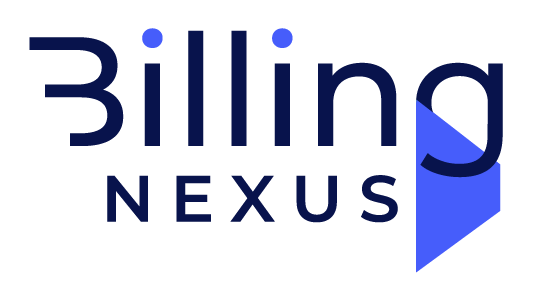Billing Compliance in 2024: What Healthcare Providers Need to Know
Compliance in medical billing is an evolving challenge for healthcare providers. With new regulations, updated coding standards, and heightened scrutiny from payers and regulators, staying compliant in 2024 is more critical than ever. Non-compliance can result in claim denials, legal penalties, and significant financial losses.
This blog dives into the latest compliance trends, key regulations, and actionable strategies to help healthcare providers navigate the complexities of billing compliance in 2024.
The Importance of Billing Compliance
Billing compliance ensures that healthcare providers adhere to federal, state, and payer-specific rules when submitting claims for reimbursement. It impacts:
- Financial Stability: Avoiding fines, penalties, and denied claims.
- Legal Protection: Preventing lawsuits related to fraud or abuse.
- Reputation: Demonstrating integrity and professionalism to patients and payers.
Non-compliance not only jeopardizes revenue but can also result in suspension of billing privileges and exclusion from federal programs like Medicare and Medicaid.
Key Regulations Shaping Billing Compliance in 2024
1. HIPAA (Health Insurance Portability and Accountability Act)
HIPAA governs patient data privacy and security, including the transmission of electronic claims. Violations can result in hefty fines and loss of trust.
2. ICD-10 Updates
Annual updates to ICD-10 codes require healthcare providers to stay current on changes to avoid errors in diagnosis coding.
3. The No Surprises Act
This act mandates transparency in billing and prevents unexpected charges for out-of-network services. Non-compliance can lead to penalties and patient dissatisfaction.
4. Medicare and Medicaid Guidelines
Providers must adhere to specific rules for billing services covered under these programs, including accurate coding, proper documentation, and timely submissions.
5. Anti-Fraud Regulations
The False Claims Act (FCA) and Stark Law prohibit fraudulent billing practices and improper physician referrals, respectively.
6. Telehealth Billing Policies
With telemedicine becoming mainstream, new guidelines govern reimbursement for virtual care, including acceptable services and technology requirements.
Compliance Challenges in 2024
1. Adapting to Frequent Updates
Regulations and payer policies evolve rapidly, making it challenging to keep billing systems and staff knowledge up to date.
2. Complex Coding Systems
Accurate use of ICD-10, CPT, HCPCS, and modifier codes requires specialized expertise to avoid errors and denials.
3. Increased Scrutiny
Audits by payers and regulators are becoming more frequent and detailed, putting providers under pressure to ensure flawless compliance.
4. Balancing Technology and Human Oversight
While automation reduces errors, over-reliance on software without human verification can lead to compliance gaps.
5. Managing Multiple Payer Requirements
Each insurance payer has unique rules and documentation needs, complicating the billing process.
Strategies to Ensure Billing Compliance in 2024
1. Conduct Regular Training
Keep your billing staff updated on regulatory changes and best practices. Invest in ongoing education and certification programs.
2. Implement Robust Audits
Perform regular internal audits to identify potential compliance issues before external audits expose them.
3. Leverage Technology
Adopt compliance-focused billing software that integrates real-time regulatory updates, error detection, and secure data handling.
4. Develop Clear Policies
Establish clear, written compliance policies and procedures for your billing team to follow.
5. Collaborate with Experts
Engage compliance consultants or outsource to professional billing services with proven expertise in regulatory adherence.
6. Monitor Payer Contracts
Review contracts with insurers to ensure alignment with current regulations and reimbursement policies.
7. Focus on Documentation
Accurate and detailed medical records are the backbone of compliant billing. Ensure all services provided are thoroughly documented.
The Role of Technology in Billing Compliance
1. AI and Automation
AI-driven billing systems flag potential compliance issues and assist with accurate coding and documentation.
2. EHR Integration
Seamless integration between billing software and electronic health records (EHR) ensures data accuracy and reduces manual errors.
3. Analytics Tools
Advanced analytics identify patterns of non-compliance, enabling providers to address issues proactively.
4. Blockchain for Data Security
Blockchain technology enhances the security and transparency of billing data, ensuring compliance with privacy regulations.
Common Compliance Pitfalls to Avoid
1. Insufficient Staff Training
Untrained staff are more likely to make errors in coding, claim submission, and documentation.
2. Ignoring Updates
Failing to incorporate new regulations or coding changes into billing processes leads to non-compliance.
3. Overlooking Payer Rules
Neglecting the specific requirements of each insurer can result in denied claims and penalties.
4. Misuse of Modifier Codes
Incorrect application of modifier codes can raise red flags during audits and lead to financial consequences.
5. Relying Solely on Automation
Automated systems are not foolproof; human oversight is essential to ensure accuracy and compliance.
Case Study: A Clinic’s Compliance Journey
A multi-specialty clinic faced increasing denial rates due to outdated billing practices. After implementing a compliance-focused billing system and conducting staff training:
- Denial rates dropped by 25%.
- The clinic avoided $500,000 in potential fines during an audit.
- Reimbursements were processed 30% faster.
This success underscores the importance of proactive compliance measures.
Future Trends in Billing Compliance
1. AI-Driven Compliance Monitoring
AI systems will play a larger role in tracking and ensuring adherence to complex regulations.
2. Real-Time Updates
Cloud-based solutions will provide instant updates on regulatory changes, keeping providers ahead of compliance challenges.
3. Increased Focus on Value-Based Care
Compliance systems will need to adapt to value-based care models, emphasizing outcomes over services.
4. Enhanced Data Security
With growing cyber threats, compliance will increasingly intersect with advanced security measures like encryption and biometric authentication.
Conclusion
Billing compliance in 2024 requires healthcare providers to stay vigilant, adapt to changing regulations, and leverage technology effectively. By prioritizing training, audits, and the right tools, providers can minimize risks and maximize reimbursements.
Compliance is not just about avoiding penalties; it’s about fostering trust, ensuring financial stability, and delivering quality care.

